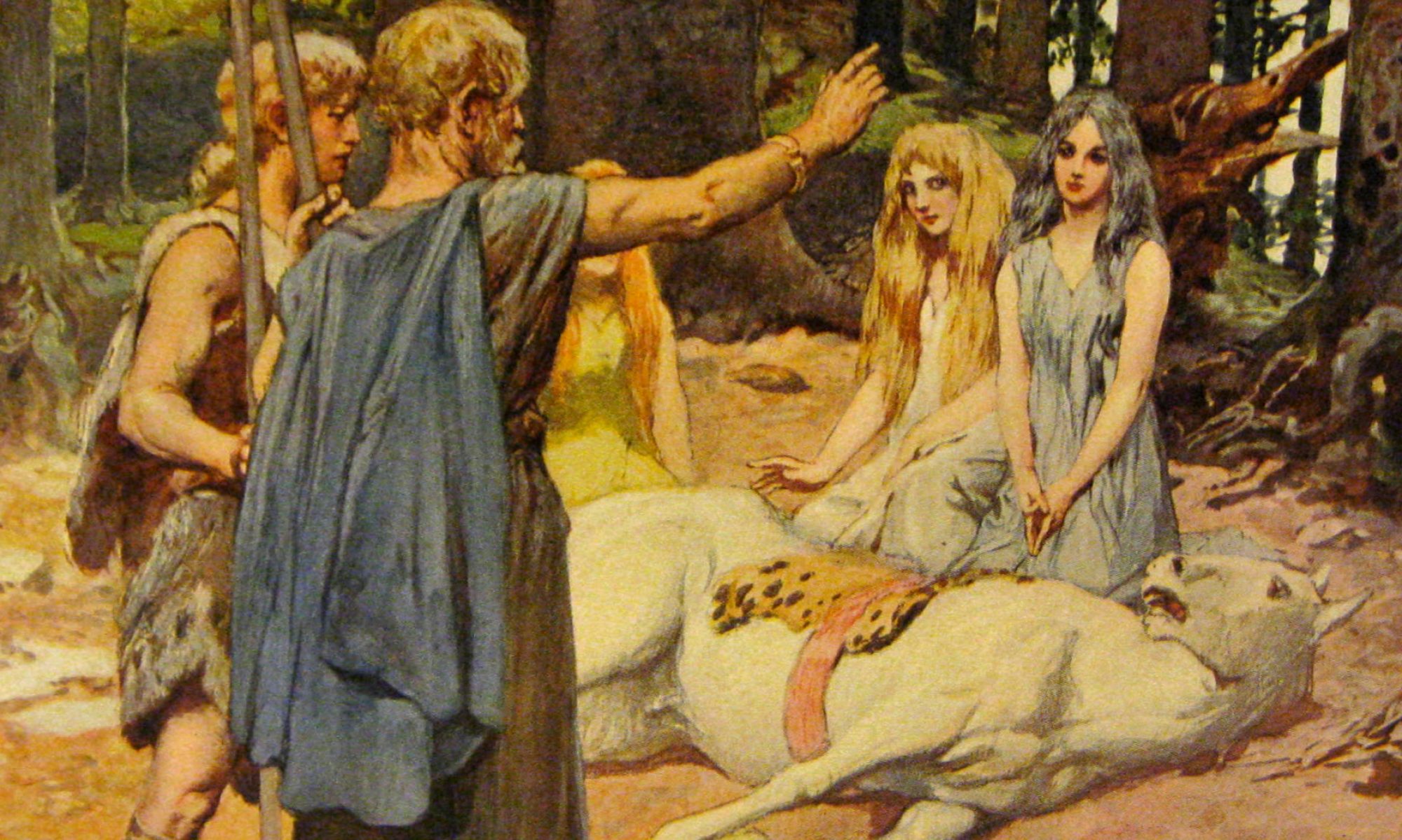23.
Þá gengu regin öll / á rökstóla,
Then went reigns all / to their ruling seats,
- Þá adv. then
- gengu 3pl. past. ganga (singular past indicative gekk, plural past indicative gengu, past participle genginn) to go, walk
- regin regin n pl (plural only, Norse mythology) the gods, the ruling powers
- öll nom. n. pl. allr (not comparable) all, entire, whole
- á prep. onto +acc., on +dat.
- rökstóla =rök+stóla, acc. pl.
- rök n pl (plurale tantum) judgement, doom
- stóll m (genitive stóls, plural stólar) a stool, chair, throne
ginnheilug goð, / ok um þat gættusk:
the high-holy gods / held council:
- ginnheilug =gin-heilǫg, nom. n. pl. gin-heilagr, a. most holy.
- goð nom. pl. goð n (genitive goðs, plural goð) (Heathenry) a god, deity (specifically of the Norse pantheon, but also of any god)
- ok conj ok and; bæði ok, both and (b er hann vitr ok framgjarn);
- um prep. +acc about around
- þat acc. n. sg. it
- gættusk mp. past 3pl. gæta (singular past indicative gætti, plural past indicative gættu, past participle gættr) to watch, guard, take care of (in the mediopassive) to take counsel
hvárt skyldu æsir / afráð gjalda
whether Aesir should / sacrifice offer,
- hvárt neut. from ‘hvárr’, as interr. adv., whether, direct and indirect;
- skyldu verb 3rd pl perf ind act skulu shall
- æsir nom. pl. áss m (genitive ásar, plural æsir) (Norse mythology) one of the gods, Æsir
- afráð wiktionary
- afráð acc. sg. or pl. afráð payment ; gjalda afráð, to pay heavily, suffer severely af-ráð, n. payment; gjalda afráð, to pay heavily, suffer severely.
- gjalda inf. gjalda to repay, return; g gjöf við gjöf, to pay back gift for gift; g aptr, to restore, pay back;
eða skyldu goðin öll / gildi eiga.
or should gods all / the guilds own.
- eða hvárt … eða, whether (if) … or;
- goðin nom. pl. def. goð n (genitive singular goðs, nominative plural goð) an idol, a pagan god
- öll adj pl neut acc allr all, entire, whole;
- gildi gildi, n. (1) payment, tribute (rare); (2) recompense, return/
gildr (gild, gilt), a. (1) valued at (g. tveim mörkum); (2) of full value;
- eiga inf. own, possess
| n-s | singular | plural | ||
|---|---|---|---|---|
| indefinite | definite | indefinite | definite | |
| nominative | goð | goðið | goð | goðin |
| accusative | goð | goðið | goð | goðin |
| dative | goði | goðinu | goðum | goðunum |
| genitive | goðs | goðsins | goða | goðanna |
